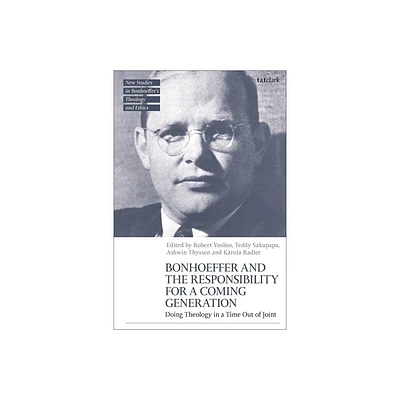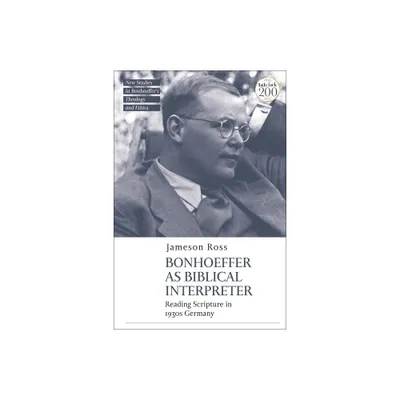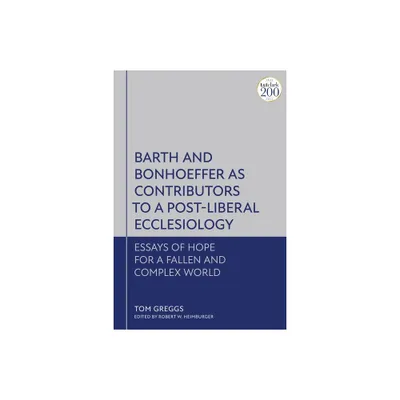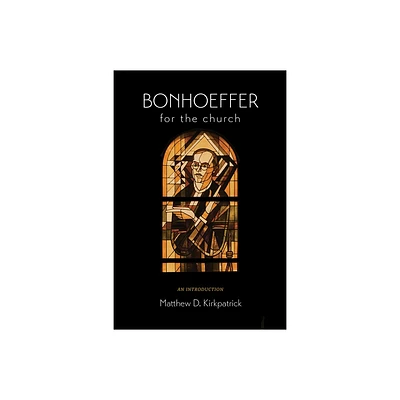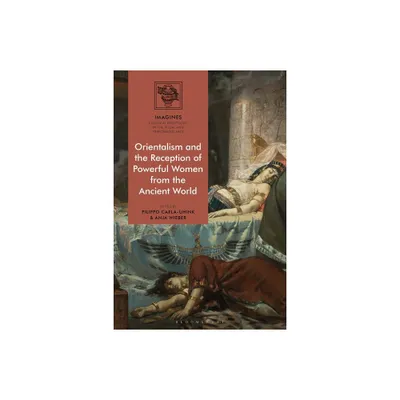Home
Bonhoeffer's Reception of Luther
Loading Inventory...
Barnes and Noble
Bonhoeffer's Reception of Luther
Current price: $130.00


Barnes and Noble
Bonhoeffer's Reception of Luther
Current price: $130.00
Loading Inventory...
Size: Hardcover
*Product Information may vary - to confirm product availability, pricing, and additional information please contact Barnes and Noble
In Dietrich Bonhoeffer's writings, Martin Luther is ubiquitous. Too often, however, Bonhoeffer's Lutheranism has been set aside with much less argumentative work than is appropriate in light of his sustained engagement with Luther. As a result, Luther remains a largely untouched hermeneutic key in Bonhoeffer interpretation. In
Bonhoeffer's Reception of Luther
, Michael P. DeJonge presents Bonhoeffer's Lutheran theology of justification focused on the interpersonal presence of Christ in word, sacrament, and church. The bridge between this theology and Bonhoeffer's ethical-political reflections is his two-kingdoms thinking. Arguing that the widespread failure to connect Bonhoeffer with the Lutheran two-kingdoms tradition has presented a serious obstacle in interpretation, DeJonge shows how this tradition informs Bonhoeffer's reflections on war and peace, as well as his understanding of resistance to political authority. In all of this, DeJonge argues that an appreciation of Luther's ubiquity in Bonhoeffer's corpus sheds light on his thinking, lends it coherence, and makes sense of otherwise difficult interpretive problems. What might otherwise appear as disparate, even contradictory moments or themes in Bonhoeffer's theology can often be read in terms of a consistent commitment to a basic Lutheran theological framework deployed according to dramatically changing circumstances.
Bonhoeffer's Reception of Luther
, Michael P. DeJonge presents Bonhoeffer's Lutheran theology of justification focused on the interpersonal presence of Christ in word, sacrament, and church. The bridge between this theology and Bonhoeffer's ethical-political reflections is his two-kingdoms thinking. Arguing that the widespread failure to connect Bonhoeffer with the Lutheran two-kingdoms tradition has presented a serious obstacle in interpretation, DeJonge shows how this tradition informs Bonhoeffer's reflections on war and peace, as well as his understanding of resistance to political authority. In all of this, DeJonge argues that an appreciation of Luther's ubiquity in Bonhoeffer's corpus sheds light on his thinking, lends it coherence, and makes sense of otherwise difficult interpretive problems. What might otherwise appear as disparate, even contradictory moments or themes in Bonhoeffer's theology can often be read in terms of a consistent commitment to a basic Lutheran theological framework deployed according to dramatically changing circumstances.


